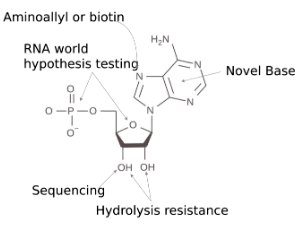Question
Question: What will happen to transcription in the absence of the Sigma factor of RNA polymerase? A. Transc...
What will happen to transcription in the absence of the Sigma factor of RNA polymerase?
A. Transcription will not take place
B. Transcription will initiate from the initiation codon
C. Transcription will initiate from many random sites
D. Transcription will initiate from the other strand
Solution
Transcription is one of many DNA-based gene expression steps in which the enzyme RNA polymerase copies a specific section of DNA into RNA. Both DNA and RNA are nucleic acids that use nucleotide base pairs as a complementary language.
Complete answer: Proteins that help in transcription initiation are Sigma factors and other factors as well. Specifically, sigma factors are important in bacteria for RNA polymerase recognition at the site of the gene promoter. The sigma factor helps the RNA polymerase to bind properly to the site of the promoter and start transcription, resulting in mRNA molecule production. In this process, the kind of sigma factor used varies and depends on the gene and the cellular environment.
Based on molecular weight, the sigma factors found to date are characterized and have shown diversity among bacterial species as well. The protein leaves the complex once the function of the sigma factor is completed, and RNA polymerase will proceed with transcription.
To ensure proper initiation of transcription, the regulation of sigma factor activity is essential and important. The behavior within a cell of sigma factors is regulated in various ways. At the levels of both transcription and translation, Sigma factor synthesis is regulated. Sigma factor expression or behavior is also dependent on the organism’s particular growth phase transitions.

Hence the correct answer is option A, Transcription will not take place.
Note: To start transcription (i.e. promoters), the sigma factor allows RNA polymerase to bind to the correct sites on DNA. The complex between core polymerase and non-promoter DNA is destabilized and reduces the length of time it is bound. It boosts the affinity and increases the amount of time that the promoter is bound to holoenzyme (a2bb's), i.e. it enables a random search for promoters.
